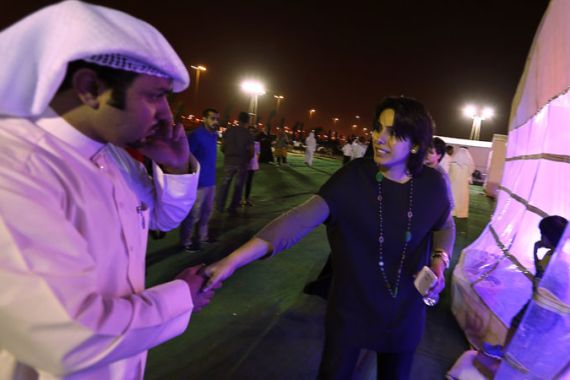Kuwaitis vote in parliamentary election
Opposition calls for boycott as Gulf nation holds sixth parliamentary poll in as many years.

Voters in Kuwait are casting ballots in the second parliamentary election in eight months, with the opposition calling for a boycott.
Saturday’s election – the oil-rich state’s sixth in as many years – was called after a court invalidated the 50-seat chamber elected in December last year.
It found technical flaws in the balloting, but let stand a new system ordered by Kuwait’s ruler for one vote per person. It replaced the former method allowing voters to spread four votes between various candidates.
“I just hope this parliament completes its (four-year) term,” said civil aviation employee Bassam Eid, after he cast his vote in Al-Qasia.
The last two parliaments were dissolved by the constitutional court on procedural grounds, while the previous houses were dissolved by the emir.
“I am really concerned at the turn of events in the country as there will be no development without political stability which we hope will be achieved after this election,” doctor Jawad Abulhassan told AFP news agency after voting.
The opposition, led by Islamists, says the new rules enable the ruling Al-Sabah family to manipulate the outcome of the vote.
Only a few opposition members are among the 300 hopefuls, including eight women, the lowest number of female candidates since women won political rights in 2005.
The opposition has failed to organise mass rallies as it did ahead of the December polls, but has remained adamant that it will not take part in a “corrupted” political system.
The National Democratic Alliance, a liberal grouping, and most Bedouin tribes which boycotted the previous polls, are taking part this time.
Political turmoil
About 440,000 Kuwaitis are eligible to vote from among a native population of 1.23 million.
The first results were expected after midnight (21:00 GMT) on Saturday.
The interior ministry has mobilised 11,000 police for the election. About 30 Arab election observers visited some of the polling stations and were assisted by monitors from the Kuwait Transparency Society.
The voting age is 21 and servicemen in the police and army are banned from casting ballots.
Analysts see little hope the election will bring political stability to the wealthy Gulf state, which has been rocked by lingering disputes since mid-2006, stalling development despite an abundance of petrodollars.
Just days before polling day, the authorities arrested at least four candidates and dozens of their election workers on the accusation of vote-buying amid allegations of rampant corruption.
OPEC member Kuwait says it sits on 10 percent of global crude reserves and pumps about 3.0 million barrels of oil a day. The emirate has amassed about $400bn in assets over the past decade.